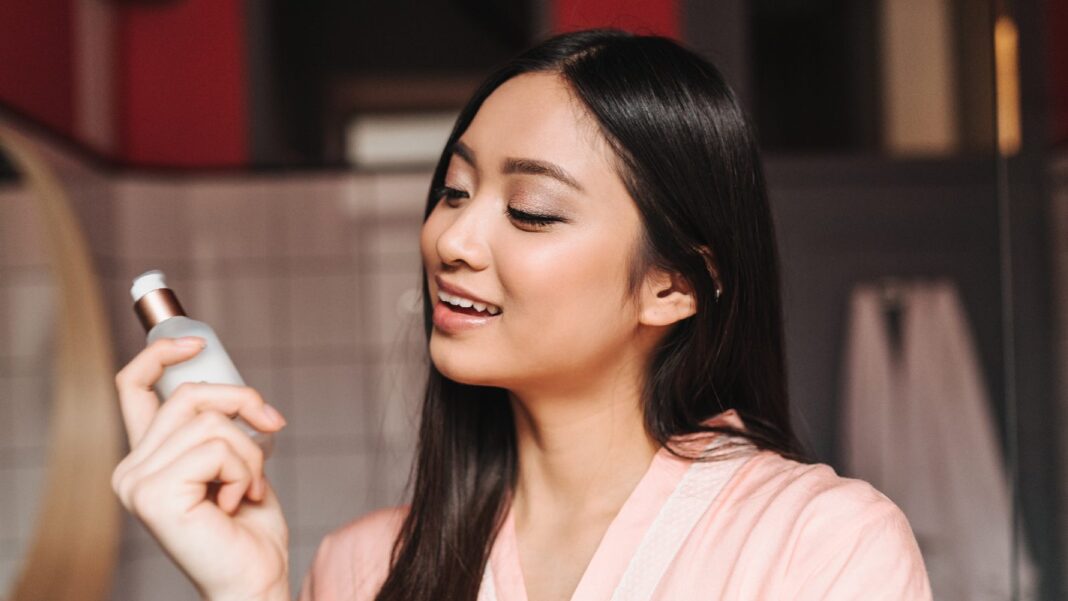Planning to include beta hydroxy acid in your skin care routine? Know how to use beta hydroxy acid for ageing skin.
As we enter our 30s, we start looking for skin care products that are effective in improving our skin texture and reducing the appearance of fine lines and wrinkles. Having an anti-ageing skin care routine is good for your skin. One ingredient that often features on the labels of such products is beta hydroxy acid (BHA). Be it a cleanser, an eye cream or a sunscreen, BHA is often used in skin care products. Read on to know all about beta hydroxy acid and how it can be used for ageing skin.
What is beta hydroxy acid?
Beta hydroxy acid (BHA) refers to a class of chemical compounds that includes salicylic acid. BHAs are oil-soluble, making them particularly effective for exfoliating the skin and unclogging pores, says dermatologist and venereologist Dr Aditi Wadhwa.

Salicylic acid, the most common BHA, is derived from salicin, a compound found in willow bark. It is widely used in skin care products, such as cleansers and toners, to address various skin concerns, including acne and uneven skin texture.
How are alpha hydroxy acids and beta hydroxy acids different?
Alpha hydroxy acids (AHAs) and beta hydroxy acids are chemical compounds commonly used in skin care for their exfoliating properties. Here are some differences –
1. Solubility
AHAs, such as glycolic acid, lactic acid, malic acid, tartaric acid, and citric acid, are water-soluble. They work on the skin’s surface, exfoliating and removing dead skin cells to improve texture, reduce fine lines, and address issues like hyperpigmentation and uneven skin tone.
BHAs are oil-soluble, a characteristic that allows them to penetrate into the pores and work within the follicles. BHAs are effective for treating issues related to clogged pores, says the expert.
2. Exfoliation mechanism
AHAs primarily exfoliate the outer layer of the skin. BHAs, with their ability to penetrate oil, exfoliate within the pores. Individuals may choose to use AHAs and BHAs in combination or separately based on their specific skin concerns and sensitivities.
Select Topics of your interest and let us customize your feed.
How does beta hydroxy acid help ageing skin?
Beta hydroxy acid offers several benefits for ageing skin. Find out all about them!
1. Exfoliation and cell turnover
BHA penetrates into the pores due to its oil-soluble nature. This helps to exfoliate within the follicles, promoting the shedding of dead skin cells. By facilitating cell turnover, BHA contributes to a smoother and more youthful complexion.
2. Reduction of inflammation and redness
Ageing skin may be prone to increased sensitivity and inflammation. Salicylic acid, the most common BHA, has anti-inflammatory properties. It helps soothe the skin, reduce redness, and alleviate irritation, contributing to a calmer and more even complexion.
3. Addressing fine lines and wrinkles
BHA’s exfoliating action not only helps with texture but also contributes to addressing fine lines and wrinkles, says Dr Wadhwa. By promoting cell turnover, it encourages the development of new, healthier skin cells, which can improve the appearance of fine lines and contribute to a more youthful look.
4. Enhancing product penetration
BHA can enhance the penetration of other skin care ingredients. Ageing skin often benefits from the use of products containing antioxidants, peptides, and other anti-ageing compounds. By improving the absorption of these ingredients, BHA complements the overall effectiveness of a skin care routine, promoting a more comprehensive approach to addressing signs of ageing.

How to use beta hydroxy acid for ageing skin?
Here are a few things to keep in mind while using beta hydroxy acid for ageing skin:
- Begin with a lower concentration (around 1 percent salicylic acid) if you are new to BHA. Increase the concentration gradually if your skin is able to tolerate it well.
- Look for well-formulated products with BHA, such as cleansers, toners or serums.
- Opt for products with moisturising and soothing ingredients.
- Start with once or twice a week then gradually increase the frequency if well-tolerated.
- Use BHA in the evening to minimise the risk of sun damage. If used during the day, follow up with a broad-spectrum sunscreen (SPF 30 or higher), as it can increase skin sensitivity to sunlight.
- Apply BHA after cleansing and before heavier products like moisturisers. It can be layered with other targeted treatments or serums, considering potential interactions and irritations.
- Watch for signs of irritation such as redness, dryness, or excessive peeling. Reduce the frequency of use or switch to a lower concentration if irritation occurs.
Who should avoid using beta hydroxy acid?
There are certain groups of people who should exercise caution or avoid using BHA. Some of them are:
1. Pregnant or breastfeeding women
The safety of BHA during pregnancy and breastfeeding is not conclusively established. While topical application is generally considered safe, it is advisable for pregnant or breastfeeding women to consult with a doctor before using products containing BHA, suggests the expert.
2. Those with highly sensitive skin
Individuals with highly sensitive or compromised skin, such as those with eczema or rosacea, may find BHA too harsh and irritating. It’s essential to prioritise skin barrier health and choose products that suit the specific needs of sensitive skin.
3. Children
The use of BHA in children is generally not recommended without the guidance of a doctor. Children’s skin is more delicate, and their skin barrier may not tolerate the exfoliating effects of BHA.
4. People with open wounds
Applying BHA to open wounds, cuts or broken skin can be painful and may exacerbate irritation. Let your skin heal before incorporating BHA in your skin care routine.









